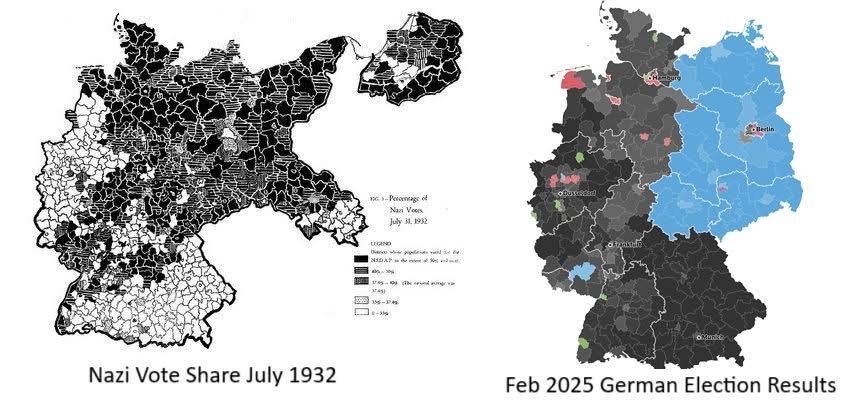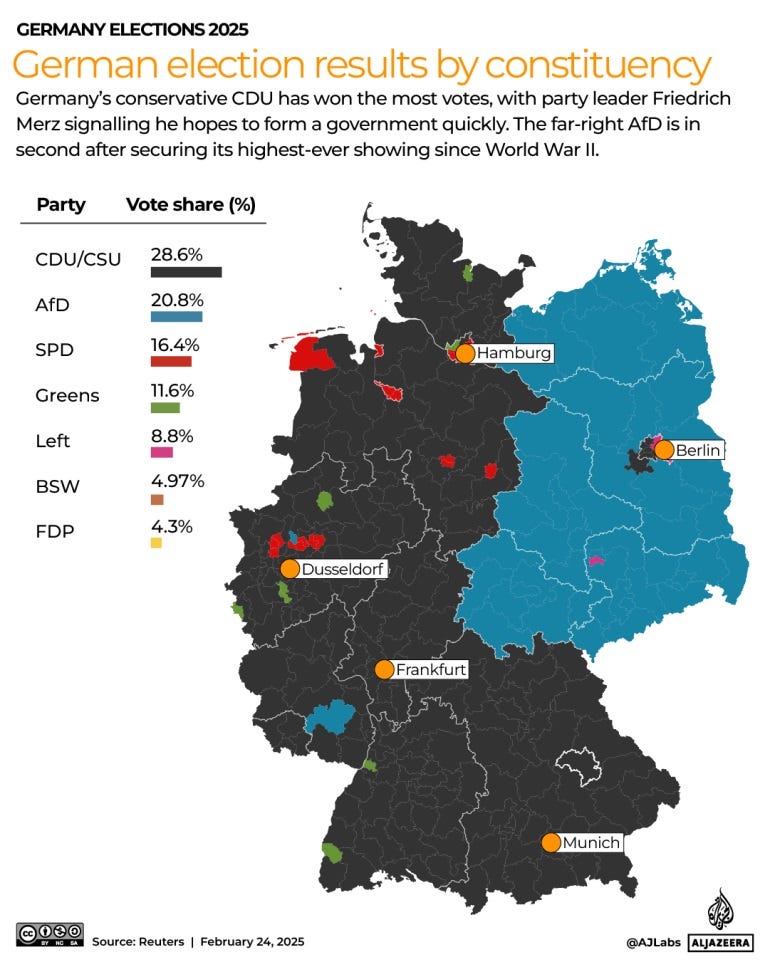German Elections 2025: the Lessons
Ossies are still Ossies, the divided Left is still the main problem, but at least Lindner and Wagenknecht are gone
What are some of the lessons from the German elections:
Germany democracy has proved itself to be resilient, with a 83.5% turnout, the highest since unification. A quarter (AfD+BSW) of Germans voting for the anti-migration demagogues is not nothing, but it is far lower than elsewhere.
East Germany and West Germany still exist mentally. It is interesting how communist East Germany was worse at explaining the perils of extreme Right wing politics to its population than democratiy West Germany.
Although it must also be said that East of Germany was also more likely to vote for the extreme Right in the thirties, so there seems to be some very deep long term trends here in spite of all the turbulence of the 20th century.
The main problem of Germany remains the same after so many decades: it cannot seem to produce a unified Left.
Die Linke are too far to the Left of where traditional Social Democracy had been during its decades of success, and SPD is too far to the Right of it. Ideally, they should find common ground somewhere inbetween.
As for Wagenknecht, she has proved that you cannot renew the Left by making it the Right. End of story.
The happiest development is that the hyper fiscally conservative FDP are out, including Finance Minister Lindner. They have been the main force blocking Germany’s development in the Ampelkoalition.






